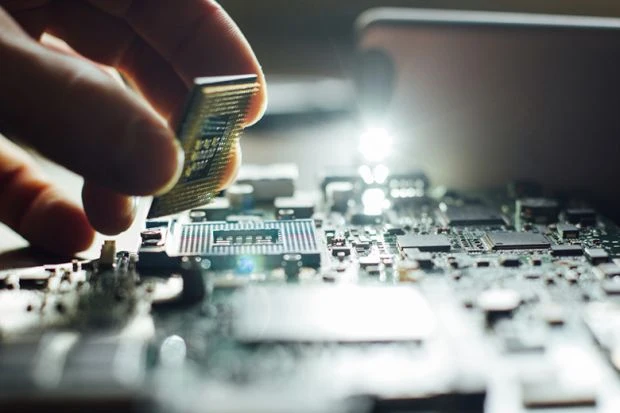In the realm of PC parts sales, the valuation of tech components plays a crucial role in determining success. With industries evolving and consumer preferences changing, understanding the factors that impact component appraisal is vital.
From market demand shifts to technological advancements and supply chain dynamics, factors influencing tech component valuation is a complex process shaped by various elements. Let’s explore the critical factors influencing the valuation of tech components in PC parts sales, revealing the web of influences driving decisions in this industry.
Key Takeaways
- Market demand, consumer preferences, and competitor actions are crucial factors influencing tech component valuation in PC parts sales.
- Technological advancements, compatibility with existing systems, and innovative features drive the value of tech components in the market.
- Brand reputation plays a significant role in determining the valuation of tech components, impacting consumer purchasing decisions and brand loyalty.
- Compatibility considerations, such as matching socket types, memory compatibility, and power supply requirements, are essential for ensuring smooth system functioning and avoiding costly mistakes in PC parts sales.
Market Demand
Market demand plays a crucial role in determining the valuation of tech components in the PC parts sales industry. Understanding the dynamics of market demand is essential for businesses operating in this sector to make informed decisions regarding pricing and inventory management. Analyzing market trends, consumer preferences, and competitor actions is vital in responding effectively to fluctuations in demand.
Data-driven insights into customer buying patterns and preferences can help businesses align their product offerings with market demand, ensuring optimal pricing strategies and inventory levels. By leveraging market demand data, businesses can forecast sales, adjust production schedules, and optimize their supply chain to meet customer needs efficiently.
Moreover, monitoring market demand allows businesses to identify emerging trends and technological advancements that can influence the valuation of tech components. By staying attuned to market demand signals, businesses can position themselves strategically in the competitive landscape and capitalize on opportunities for growth and innovation.
Technological Advancements
The evolution of technological advancements significantly impacts the valuation of tech components in the PC parts sales industry. As technology progresses, several key factors come into play:
- Performance Enhancements: New technological advancements often lead to improved performance in tech components, such as faster processors, higher storage capacities, and enhanced graphics capabilities. These performance upgrades can directly influence the valuation of these components in the market.
- Compatibility: With each technological advancement, compatibility with existing systems becomes a crucial consideration. Components that offer seamless integration with a wide range of devices tend to have higher valuations due to their versatility and ease of use.
- Innovation and Uniqueness: Tech components that introduce innovative features or unique functionalities as a result of technological advancements can command higher valuations. Consumers are often willing to pay a premium for cutting-edge technology that sets their devices apart from the rest.
These factors highlight how technological advancements play a pivotal role in determining the value of tech components in the competitive PC parts sales landscape.

Brand Reputation
Established brands in the tech industry often wield significant influence over the valuation of tech components in the PC parts sales market. Brand reputation plays a crucial role in determining the perceived quality, reliability, and trustworthiness of a tech component.
Consumers are more inclined to pay a premium for products from reputable brands due to the assurance of performance and durability associated with these companies. Research indicates that well-known tech brands command higher prices and experience stronger demand compared to lesser-known or generic alternatives.
Brand loyalty further enhances the valuation of tech components, as customers tend to prefer sticking to brands they trust, even if it means paying a higher price. Additionally, positive brand associations can lead to increased customer satisfaction and repeat purchases, contributing to higher valuations for tech components in the long run.
In a competitive market where numerous options are available, a strong brand reputation can be a decisive factor in influencing consumer purchasing decisions and ultimately impacting the valuation of tech components in PC parts sales.
Component Compatibility
Analyzing the intricate interplay of component compatibility is essential in determining the seamless integration and optimal performance of tech components within a system. When evaluating component compatibility, several key factors come into play:
- Socket Type: Ensuring that the processor socket type matches the motherboard socket is crucial for proper functioning. Incompatibility in this aspect can lead to the inability to install the processor or reduced performance.
- Memory Compatibility: Matching the RAM type, speed, and capacity with the motherboard’s specifications is vital. Mismatched memory components can result in system instability or limited memory functionality.
- Power Supply Requirements: Checking that the power supply unit (PSU) meets the power demands of the components is necessary. Inadequate power supply can lead to system crashes or hardware damage.
Considering these factors in component compatibility is paramount to avoid costly mistakes and ensure a smooth and efficient functioning system for tech enthusiasts and professionals alike.
Supply Chain Dynamics
Considering the critical role of component compatibility in ensuring seamless integration, it becomes imperative to examine the intricate dynamics of the tech supply chain to understand how various factors impact the availability and distribution of these essential components.
The supply chain dynamics in the tech industry encompass a complex network of manufacturers, distributors, retailers, and logistics providers working together to deliver products to the end consumer. Factors such as global demand fluctuations, geopolitical events, trade policies, and even natural disasters can significantly affect the supply chain, leading to disruptions in the availability of tech components.
For instance, a shortage of a specific component due to manufacturing delays in one region can have ripple effects across the entire supply chain, impacting product availability and pricing. Understanding these supply chain dynamics is crucial for businesses operating in the tech industry to mitigate risks, optimize inventory management, and maintain a competitive edge in the market.
Pricing Strategies
In the realm of tech component valuation, implementing strategic pricing strategies is paramount for optimizing profitability and market competitiveness. When it comes to pricing tech components in PC parts sales, several key strategies can influence the valuation process:
- Dynamic Pricing: Utilizing algorithms to adjust prices based on market demand, competition, and other external factors can help optimize revenue and maintain a competitive edge.
- Value-Based Pricing: Setting prices based on the perceived value of the tech component to the customer rather than solely on production costs can lead to higher margins and increased customer satisfaction.
- Bundling and Upselling: Offering bundles of tech components or upselling complementary products can not only increase the average order value but also create a perception of added value for customers.
Frequently Asked Questions
How Do Market Demand Trends Impact the Valuation of Tech Components in PC Parts Sales?
Market demand trends significantly influence the valuation of tech components in PC parts sales. Understanding shifts in consumer preferences, emerging technologies, and supply chain dynamics is crucial for accurately pricing components. Adapting to these trends ensures competitive pricing strategies.
What Role Do Technological Advancements Play in Influencing the Valuation of Tech Components in the PC Parts Industry?
Technological advancements are pivotal in shaping tech component valuation in the PC parts industry. Upgraded features, enhanced performance, and compatibility with newer software drive demand, influencing pricing and overall market value significantly.
How Does Brand Reputation Affect the Valuation of Tech Components in the Market?
Brand reputation significantly impacts the valuation of tech components in the market. Strong brand equity can command premium prices, engender trust, and enhance perceived value. A positive reputation can lead to increased sales, customer loyalty, and market dominance.
Why Is Component Compatibility an Important Factor in Determining the Valuation of Tech Components in PC Parts Sales?
Component compatibility is crucial in determining the valuation of tech components in PC parts sales as it ensures seamless integration and optimal performance. Compatibility issues can lead to customer dissatisfaction, returns, and decreased perceived value.
How Do Supply Chain Dynamics Impact the Valuation of Tech Components in the PC Parts Industry, and How Can They Influence Pricing Strategies?
Supply chain dynamics play a crucial role in tech component valuation within the PC parts industry. Effective management of suppliers, inventory levels, and logistics impacts pricing strategies. Understanding these dynamics is essential for optimizing profitability and competitiveness in the market.
Conclusion
In conclusion, the valuation of tech components in PC parts sales is influenced by various factors such as:
- market demand,
- technological advancements,
- brand reputation,
- component compatibility, and
- supply chain dynamics.
Understanding these key elements is essential for businesses and consumers to make informed decisions in a competitive marketplace.
By analyzing these factors in a data-driven manner, stakeholders can navigate the complexities of tech component valuation and adapt their strategies to meet evolving market trends.
You may also like to read:
Efficiency Meets Aesthetics: Tech-Driven Renovation Tips for Realtors
